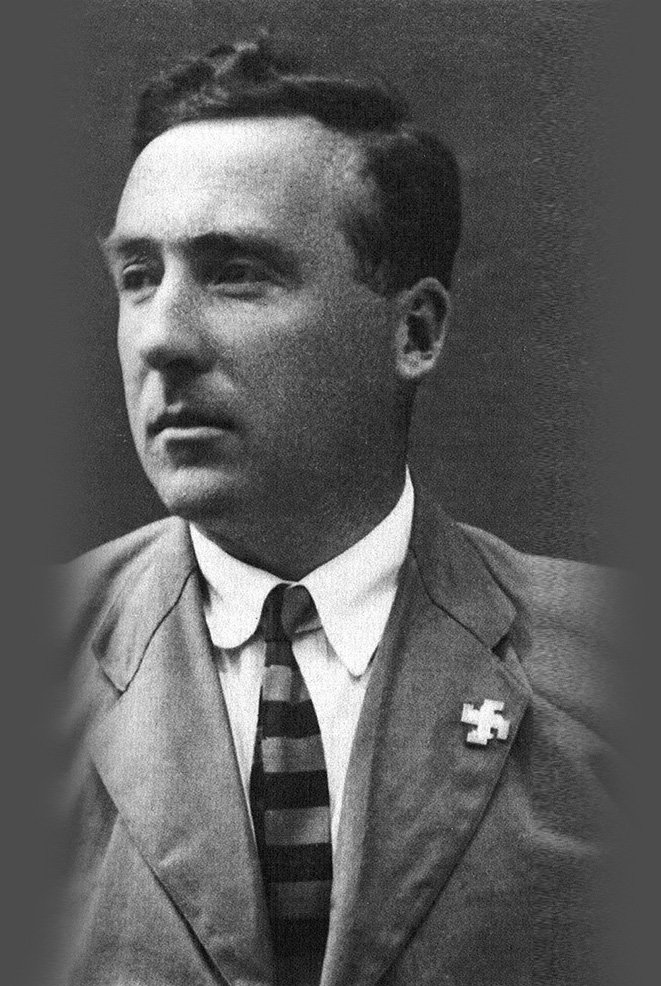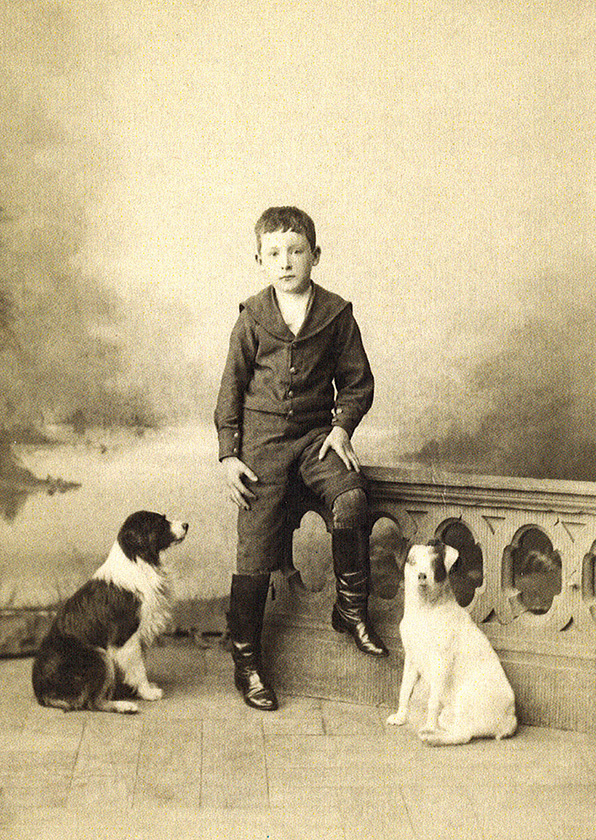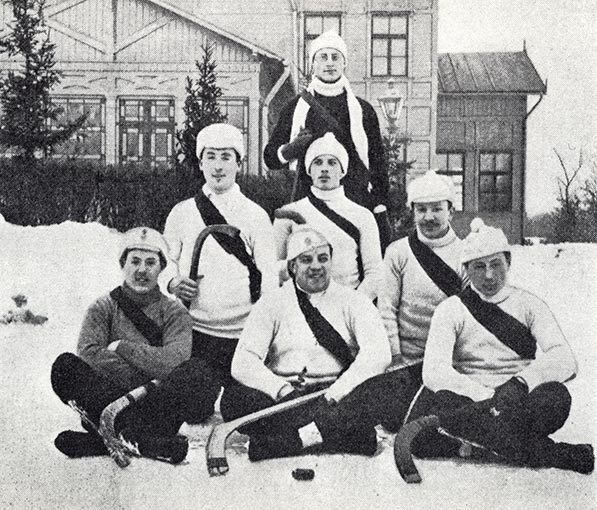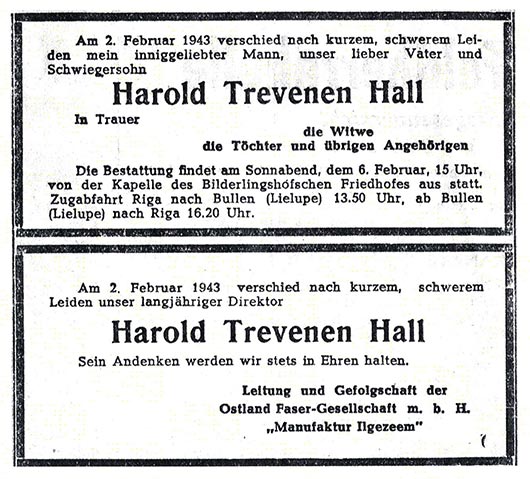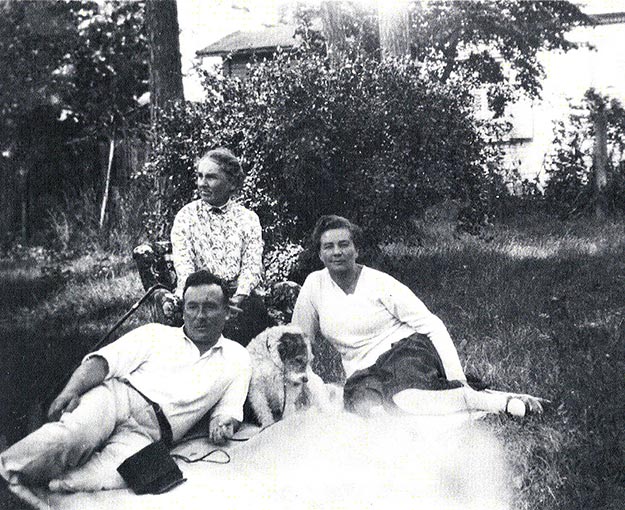At the outbreak of World War II, many of the British people who had settled in Riga at that time already left Latvia in 1939. In October of that year, Lucy Addison, the mother of Harold's wife, wrote in her memoirs: '...in that case the diplomatic missions and embassies would also have to go away, and the British Minister would see that we, the British people, were stalling for time'. It was a letter from Latvia. Harold, who with his family was closely connected to both the British Embassy and the Secret Service, should have been fully aware of the political and economic consequences that came with the Soviet occupation.
Harold's family ties in Latvia had already been significantly severed, as his daughters had already left the country in the summer of 1939 and his parents and wife were dead. The first wife's parents, Lucy and William Addison, were still in Latvia, and did not want to take the long journey back to the UK. At that time, it would have meant crossing the vast country of Russia, then across the ocean to the USA, and only then to the UK. For people of respectable age, such a journey would have been too difficult.
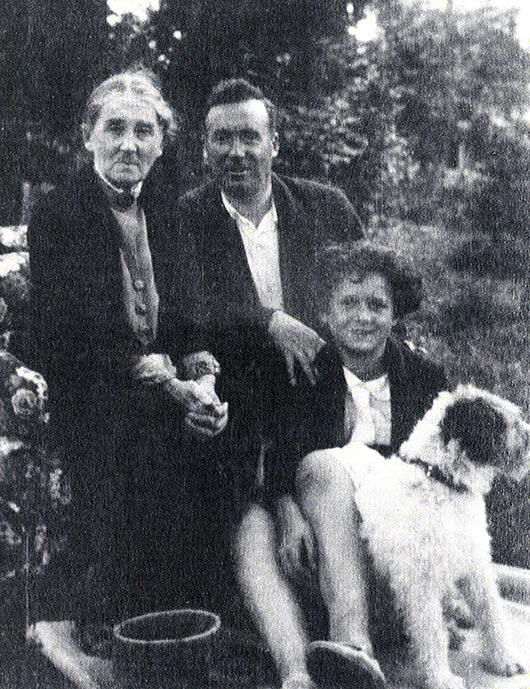
The only source that raises thoughts about Harold remaining in Latvia is Lucy's diary. In it, she said that Harold was on an assignment and was far away from home. Harold was very familiar with both the Soviet nationalisation policy and the Red Terror. Thus, he should have been clearly aware of what awaited him if he did not leave Latvia. From this it can be concluded that Harold was either following orders to stay in Latvia, or he was waiting for an official order to leave Latvia, but he never did.
We may never know the reasons that led Harold to stay in Latvia. He was a very reliable employee and a true perfectionist. Perhaps he was waiting until the last minute for another important task, which never happened. And the stay in Riga was already prolonged...
In 1940, the new director of the Iļģuciems factory, Mayland - a former factory handyman - moved into Harold's house in Jūrmala.
During the first years of the Nazi German occupation, Harold and his wife Lina were still living in Jūrmala, but then all British people were ordered by the German commandant to leave Jūrmala within 24 hours. It was the beginning of July 1941. The Halls complied with this order and moved into the house of the Iļģuciems Manufactory director, which had previously belonged to the Hall family. A month later, William and Lucy, the parents of his first wife, Yves, and his sister-in-law, Joan, moved there too.
On 10 February 1942, the German Security Police (‘The Sicherheitspolizei’) entered Hall's home and carried out a search. Firearms and compromising documents were sought. Although they were not found, Harold was arrested. He spent four days in prison with other British nationals. Harold was later transferred to Riga Central Prison. With the help of a family friend, Krommer, a Baltic German serving in the Secret Police, the relatives managed to provide Harold with clothes and food.
Harold was released on 16 June 1942. His mother-in-law mentioned in her diaries that on 30 January 1943 Harold fell seriously ill and doctors diagnosed meningitis, as a result of which he was transferred from Iļģuciems to a hospital. When Lucy Addison and Lina came to see Harold on 2 February, the medical staff pronounced him dead.
However, Harold's granddaughter Iona remembers her mother talking about the real reasons for his death, which were most likely related to his occupation. Harold was “released” from the prison very ill and after being brutalized and tortured, he was thrown on the street. At the time, Lucy may have been afraid to tell the truth in her diary because it was written during the war.
